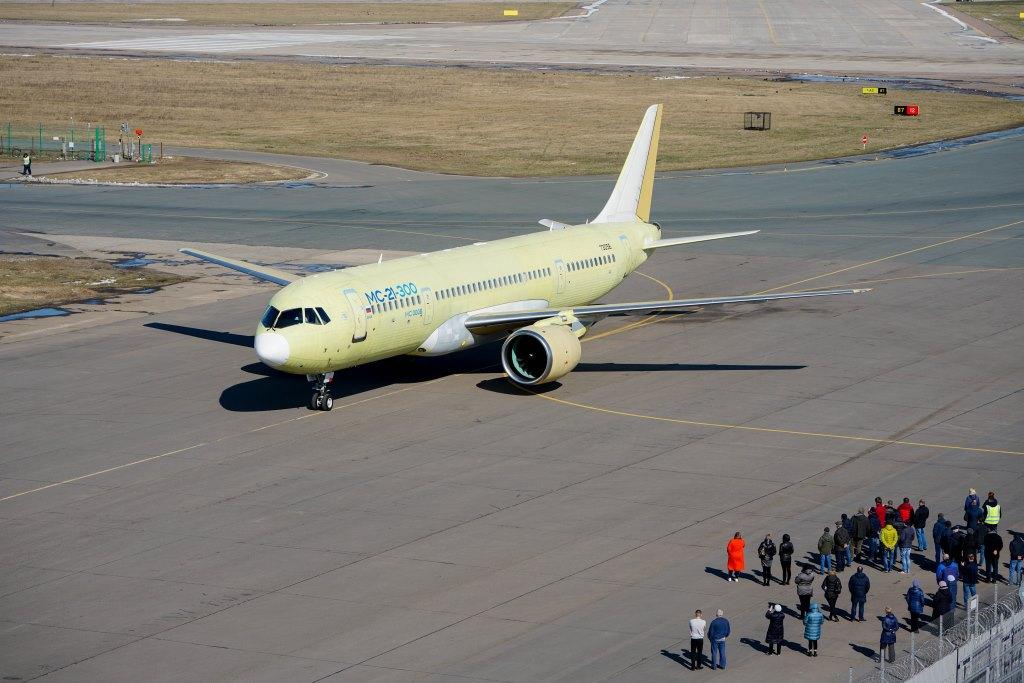
MOSCOW—Irkut Corporation has resumed the flight trials of its new MC-21 narrowbody aircraft in Zhukovsky, near Moscow.
The flights were suspended on March 30 when Russian president Vladimir Putin declared a nationwide lockdown due to the COVID-19 pandemic.
The ban has now been softened for some sectors of the economy, including the aerospace industry. An Irkut representative confirmed to Aviation Daily that the test flights restarted on April 16.
Four MC-21-300 prototypes are being tested at present. The fourth test aircraft—fitted with the maximum single-class capacity of 211—arrived at the Gromov Flight Research Institute in Zhukovsky from Irkut’s manufacturing site in Irkutsk, East Siberia in March.The third prototype, revealed in 2019, features a standard two-class configuration for 16 business and 147 economy class seats.
MC-21 certification trials started in autumn 2017. The aircraft has made more than 300 test flights, according to Irkut. This included flutter tests, engine and APU in-flight starting, engine failure take-off and landing, the minimum unstick tests, blind landing and most of the tests for angle-of-attack limits.
This brings the Russian aircraft almost halfway through the certification program as 650 flights are needed to get the Russian type certificate and to start deliveries, according to Irkut.
Under the current schedule, the aircraft is expected to get Russian certification by the end of 2020 while deliveries are planned to begin from the second half of 2021.
The total number of MC-21 firm orders is stuck at 175 aircraft, mostly from the government-owned lessors. Russia’s largest airline Aeroflot is likely to be the launch operator with 50 of the type, all with PW1400G turbofan engines.





